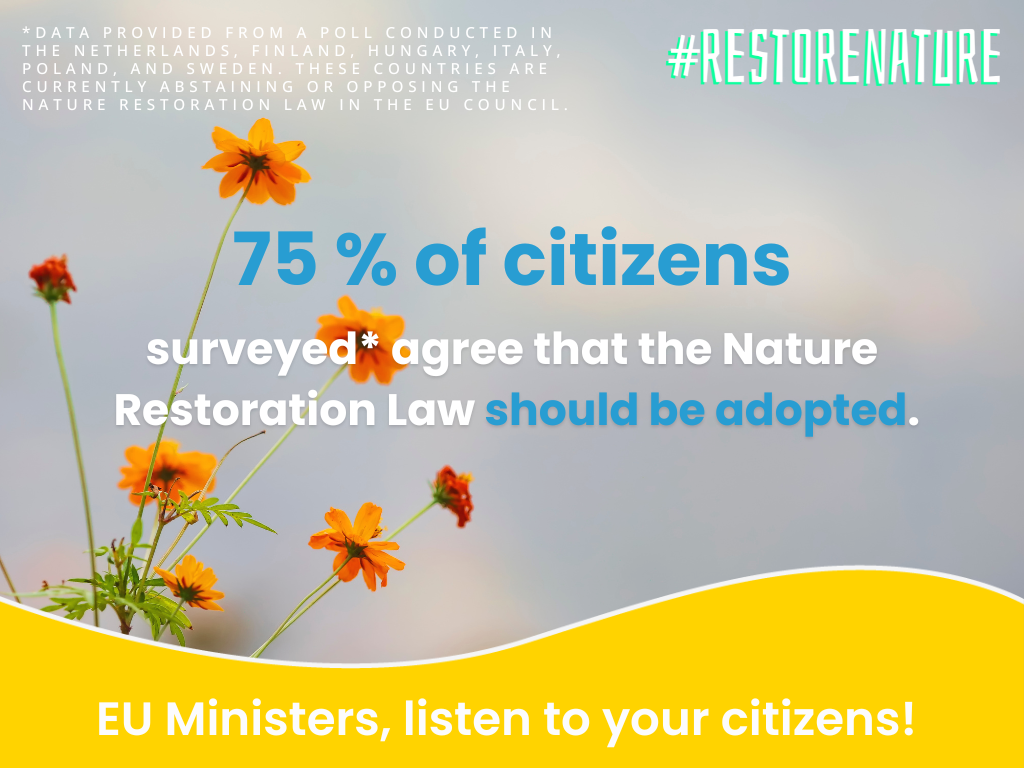Nature Restoration Law supported by 75% of citizens in countries not backing the law

EU Member States not supporting the Nature Restoration Law are at odds with public opinion. This is the result of a poll conducted in the Netherlands, Finland, Hungary, Italy, Poland, and Sweden, which shows that three out of four citizens are in favour of the legislation, as pressure mounts on Member States to adopt the long-awaited law.
The Nature Restoration Law, an EU response to the interlinked climate and biodiversity crises, has been in a stalemate since March when it
lost the necessary majority from Member States, following Hungary’s last-minute U-turn. Now,
a new survey - which was conducted by Savanta
with 6190 respondents across the six Member States - reveals that the majority of people in countries not supporting the law believe that nature and biodiversity decline will have negative long-term effects on people, farming and the economy and that it must be tackled urgently by restoring ecosystems.
The Nature Restoration Law received the biggest support in Italy with 85% of citizens backing it, followed by Hungary with 83%, and Poland with 72%. While in Finland and in Sweden, respectively 70% and 69% of the people supports it. Only 6% of those surveyed disagreed that the law should be adopted. The full results can be consulted here.
The #RestoreNature coalition, consisting of BirdLife Europe, ClientEarth, EEB and WWF EU, says: “These results prove that some Member States ignore citizens’ concern for nature. Despite 75% of the Dutch, Finnish, Hungarian, Italian, Polish and Swedish populations supporting the Nature Restoration Law, their governments continue to deny them the benefits of nature restoration, including protection from extreme weather events, improved health and well-being, and long-term financial gains. These numbers confirm how crucial it is for the EU to adopt the law and should be a wake-up call for governments not supporting this vital, citizens-backed legislation. No one wins when our nature is deteriorating while everyone can win when we let nature bounce back.”
The results come on the heels of a powerful letter sent by 11 environment ministers, urging their counterparts to adopt the law at the upcoming Environment Council meeting on 17 June.
***
Notes to editors:
The results above come from a poll conducted by Savanta, an independent research agency. Savanta interviewed 6,190 respondents across Poland, Finland, Sweden, Italy, the Netherlands and Hungary between 1st and 9th May 2024. Quotas were set to make the sample nationally representative by age, gender and region in each country. Data were weighted evenly between each country. Full results can be found
here.





